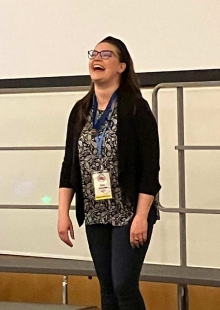 The end of September marked the twentieth anniversary of the completion of my first book. It was another 18 months in production, so we’re a way off the two-decade milestone for publication, but in terms of the shape of my life, the submission of the manuscript is the more vivid memory.
The end of September marked the twentieth anniversary of the completion of my first book. It was another 18 months in production, so we’re a way off the two-decade milestone for publication, but in terms of the shape of my life, the submission of the manuscript is the more vivid memory.
When it came out, the two chapters that got the biggest response from within the barbershop community were those dealing with, respectively, gender and tag-singing. And there are ways in which both of those dimensions of barbershop culture have changed in the interim, and also ways in which they haven’t.
On the face of it, gender would appear to have seen the biggest changes, with the embracing of both mixed barbershop ensembles, and the increasing presence of men’s and women’s ensembles at the same events – whether competing against each other (as in the Barbershop Harmony Society, BinG!, and IABS), or in parallel contests with separate rankings (as in the European championships and SNOBS/Northern Lights joint conventions). My chapter title of ‘Separate but Equal?’ would be less of an immediately obvious choice today.


